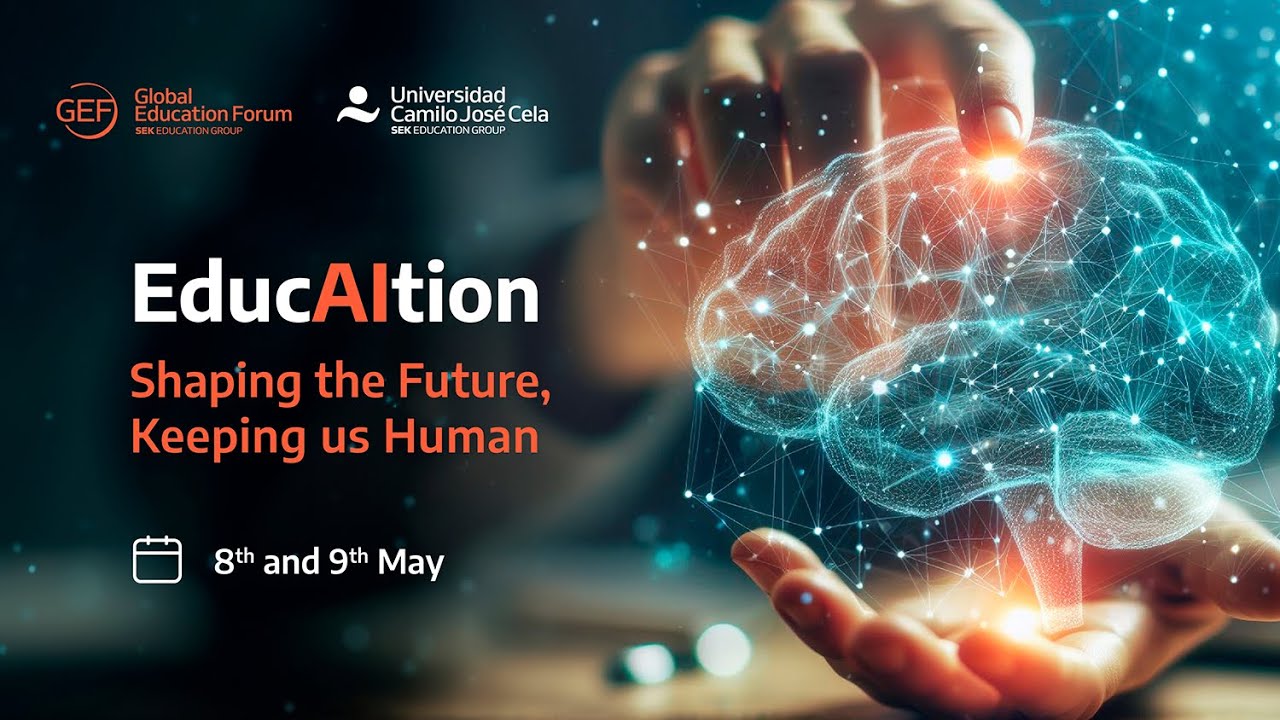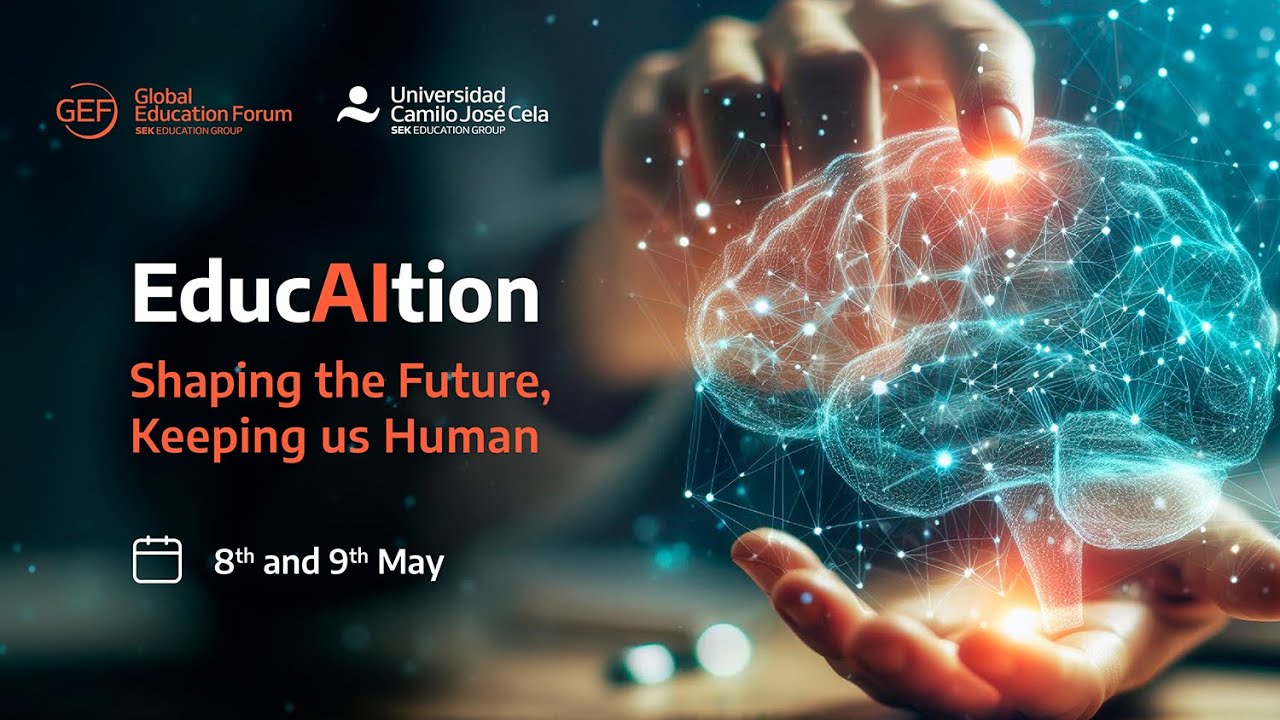Educación Superior 4.0 Frente a La Industria 4.0
Summary
TLDRThis transcript explores the intersection of higher education and Industry 4.0, discussing the rapid technological transformations shaping society. It emphasizes how education must adapt to the digital age, integrating Big Data, artificial intelligence, and data science into everyday practices. The piece highlights the evolution from traditional educational methods to a more innovative, interconnected approach, where creativity and digital tools drive progress. It underscores the urgent need for universities to prepare students for a world of uncertainty and profound change, advocating for a shift towards a more socially conscious, technology-driven educational model.
Takeaways
- 😀 The future is uncertain, and we must prepare for unprecedented transformations and uncertainties in society and technology.
- 😀 Higher education needs to evolve to adapt to the digital age and Industry 4.0, integrating technologies like Big Data and Artificial Intelligence.
- 😀 Educators and institutions must focus on developing creativity, innovation, and critical thinking, aligning education with the needs of Industry 4.0.
- 😀 Traditional education models (e.g., memorization and knowledge transmission) are outdated and must be replaced by more interactive and innovative approaches.
- 😀 The role of universities is shifting from being the sole source of knowledge to being facilitators of learning, encouraging collaboration with various sources of information.
- 😀 Education 4.0 is a convergence of human intelligence and artificial intelligence, aiming to drive digital transformation while fostering social responsibility.
- 😀 A culture of exponential, disruptive thinking must be cultivated in both students and faculty to thrive in the face of technological advancements.
- 😀 The integration of Big Data and data science into higher education curricula is critical for preparing students for future job markets.
- 😀 Ethical concerns around emerging technologies, such as modifying human minds and bodies, need to be considered and addressed in educational settings.
- 😀 Education should not only focus on technological innovation but also foster values like sustainability and social equity to tackle global issues like inequality and climate change.
Q & A
What is meant by the concept of 'education 4.0' in the context of the script?
-Education 4.0 refers to the convergence of artificial intelligence and human intelligence, emphasizing the role of digital transformation, creativity, and innovation. It involves integrating new technologies like Big Data and data science into everyday educational practices, making it adaptable to the needs of the Fourth Industrial Revolution.
How does the Fourth Industrial Revolution relate to education?
-The Fourth Industrial Revolution, which began in 2011 in Germany, represents a shift towards digital products and smart technologies. It offers educational institutions opportunities to incorporate creativity and innovation into research and teaching, aligning educational practices with cutting-edge technological advancements like Machine Learning and Deep Learning.
What are some technological advancements associated with Industry 4.0?
-Industry 4.0 is distinguished by advancements like additive manufacturing (3D printing), smart factories, the Internet of Things (IoT), and machine learning technologies, such as deep learning. These innovations are creating new opportunities for education to evolve.
How does the script suggest that education systems must adapt to societal changes?
-The script emphasizes that education systems must evolve to address unprecedented transformations in society. This includes preparing students to handle uncertainty and rapid technological changes, focusing on skills needed for a future shaped by digital technologies and global challenges like climate change and inequality.
What is the importance of Big Data in modern education according to the script?
-Big Data is highlighted as a crucial element for modern education. The script questions how many universities and institutions are integrating Big Data and data science into their curricula, suggesting that these technologies should be a common practice to enhance learning and decision-making.
What challenges are mentioned regarding global issues and their impact on education?
-The script highlights several macro-challenges, including climate change, pandemics, geopolitical conflicts, and growing inequality. These issues demand a new educational approach that incorporates awareness of these global problems and prepares students for a rapidly changing world.
How does the script describe the evolution of industrial revolutions and its parallel to education?
-The industrial revolutions are described in terms of technological shifts, from the steam engine (Industry 1.0) to telecommunications (Industry 2.0), electronics and transistors (Industry 3.0), and the current digital and smart technologies (Industry 4.0). Similarly, education has evolved from traditional knowledge transfer (Education 1.0) to more interactive and integrated learning approaches (Education 2.0 and 3.0). Education 4.0 corresponds to the latest technological advancements in Industry 4.0.
What is the vision for universities and public institutions in terms of Education 4.0?
-The script suggests that universities and public institutions should foster a culture of innovation and creativity by integrating technologies like AI, Big Data, and machine learning. It calls for universities to move beyond traditional knowledge transmission and adopt a more proactive, values-based approach to education.
How does the script view the role of ethics in the evolving technological landscape?
-The script expresses concern that the rapid pace of technological advancement is outpacing ethical and legal standards. It stresses the need for a new form of knowledge that prioritizes ethics and values, ensuring that technological progress serves humanity in a responsible manner.
What is the script's perspective on the future of education in relation to inequality?
-The script acknowledges that inequality persists and may even deepen in the face of technological advancements. It argues that education must respond to these disparities by fostering inclusivity, social commitment, and the shared responsibility of addressing global challenges like inequality.
Outlines

This section is available to paid users only. Please upgrade to access this part.
Upgrade NowMindmap

This section is available to paid users only. Please upgrade to access this part.
Upgrade NowKeywords

This section is available to paid users only. Please upgrade to access this part.
Upgrade NowHighlights

This section is available to paid users only. Please upgrade to access this part.
Upgrade NowTranscripts

This section is available to paid users only. Please upgrade to access this part.
Upgrade NowBrowse More Related Video
5.0 / 5 (0 votes)





